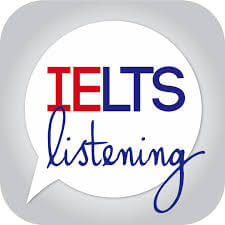Over time, the craze for studying abroad has only seen an increase in students giving all sorts of entrance exams to secure a seat in the best colleges outside.
It wouldn’t be trite to suggest that the number of students appearing for IELTS has grown manifold. Call it the surge in IELTS coaching institutes or otherwise, every other student these days can be seen preparing for this coveted exam.
Well, talking about the IELTS exam, one of the most technical yet scoring sections is the listening section. In this blog, we shall let you know about some great listening tips that you can utilize while appearing for the paper.
Take a look.
The IELTS exam has a 30 minute listening section in which 4 recordings are made heard to the examinee. The objective of this section is to assess the examinee’s ability to understand the main purpose and factual matrix of the recording. It also tests your ability to follow the development of the conversation.
The section has 40 questions divided into 4 sections. The sections get technical with each passing phase which means that the first section is the easiest while the final section is the toughest.

Here are some useful tips:
- Grasp major information in the first hearing:
Please remember that the recording is played only once. This primarily means that a student has to grasp all possible information in the first attempt and then formulate this chain of ideas. The only way to develop the skill of hearing once and forming a sense of the conversation is to practice through regular training programs. Do this a number of times. At first, you might have to pay the recording numerous times but as soon as you progress; you would develop a habit of extracting vital information in a single play.
- Let there be no miscommunication:
Often, there are situations when the recording might not be played clearly or there might be some glitch while it is played. In such a situation, waste no time in letting the official know about your inability to understand the recording. Do not let your chance of listening to the recording go in vain for want of clarity or any other fault on the part of the examiner. At the same time, it is important to know that you should try and anticipate the conversation in order to know the next probable sentence. This will surely require concentration but it is worth the benefit. Even while you are undergoing training for the exam, make sure you gauge what possible information the speaker might give. Sometimes, there might be a word which you might not understand at all. In such a case, move ahead for you might never have to use that word while framing your answer.
- Word limit is imperative:
Pay close attention to the requirement of the question. In case the question demands that the answer be written in 2 words, if you try to exceed the limit, the answer would be considered incorrect. Try to saturate your information in the least amount of words. We are sure it is as easy as it sounds.
- Attempt all and revise:
One of the major advantages in this section of the IELTS paper is that there are no penalties for incorrect answers. In lieu of the same, one great IELTS listening tip would be to be fearless and attempt all questions. The most that could happen is that you might have an incorrect answer. At the same time, make sure you revise your answers. Examinees, on the spur of excitement, often make grave mistakes in their answers which further affect their score adversely. In order to bypass this issue, finish your paper before the stipulated time and go through the paper all over again for possible errors.
- Watch your spellings:
Since the IELTS paper primarily checks your English, you cannot afford to write wrong spellings. Make sure that you write the spellings. It may at first sound a little childish but you see an incorrect spelling leads to an incorrect answer. Be watchful of what you write.
- The flow of answers:
In certain conversations, you might get 3-4 answers in a single sentence. In another conversation, you might get a single answer in two sentences. Why we are reiterating this is because examinees tend to get confused when they do not find an answer in a single sentence. The IELTS exam is prepared n such a manner so it can check how well the student comprehends the conversation. Don’t panic and listen carefully to each and every sentence. The answer might come not immediately, but eventually.
- Rough draft:
It is suggested by most experts that one should not jump to writing on the answer sheet directly. We suggest that you first write down all your answers on the test paper and then transfer them on to the answer sheet. The IELTS exam provides an extra 10 minutes to finish your answer sheet. One useful IELTS listening tip here would be to finish your answer sheet during that extra time so you can focus more on your spellings and handwriting. Pay special attention to your handwriting. If the examiner is unable to read what you have written, your answer will be marked incorrect. Do not try to bypass common procedures and jump to shortcuts. Use your time to the best of your ability.
- Use all capitals:
Sometimes, a person might have a shabby handwriting. In other instances, he might not know what words to highlight. In all such situations, make sure that you use capital letters to write your answer. It is the safest bet and is one of the most commonly used listening tip in the IELTS exam. This way, you wouldn’t have to worry about marks being deducted for not writing the requisite words in capitals.
- Move on:
It may so happen that you might miss a question. If you begin to put all your time on that particular question, you might lose out on crucial time and probably, the next answer too. Do not waste time unnecessarily on questions that you have been unable to answer.
- Improve your general listening skills:
In order to ace the IELTS exam, you need to perfect your listening skills on a general standard. The most effective way to do this is to pay attention to the general conversation that you have in your daily life. However, listening exercises and making good use of the listening material would also help you in this regard. The goal is to become familiar with the test. Use as many techniques as you can to do the same.
- Polish your topic wise vocabulary:
To explain this point, take an example: if your question talks about a conversation between a tutor and a student, you need to know basic keywords that might come handy in the conversation such as assignment, subject, chapter, timings, etc. This way, you won’t have to be absolutely unaware of what the next possible sentence might be. Similarly in case of a conversation pertaining to an airport, certain keywords such as departure, arrival, timings, flight number, etc. might be useful.
So this was all about IELTS listening tips. We hope that you found the information worthwhile. Feel free to read more about IELTS related articles only at Studydekho.




